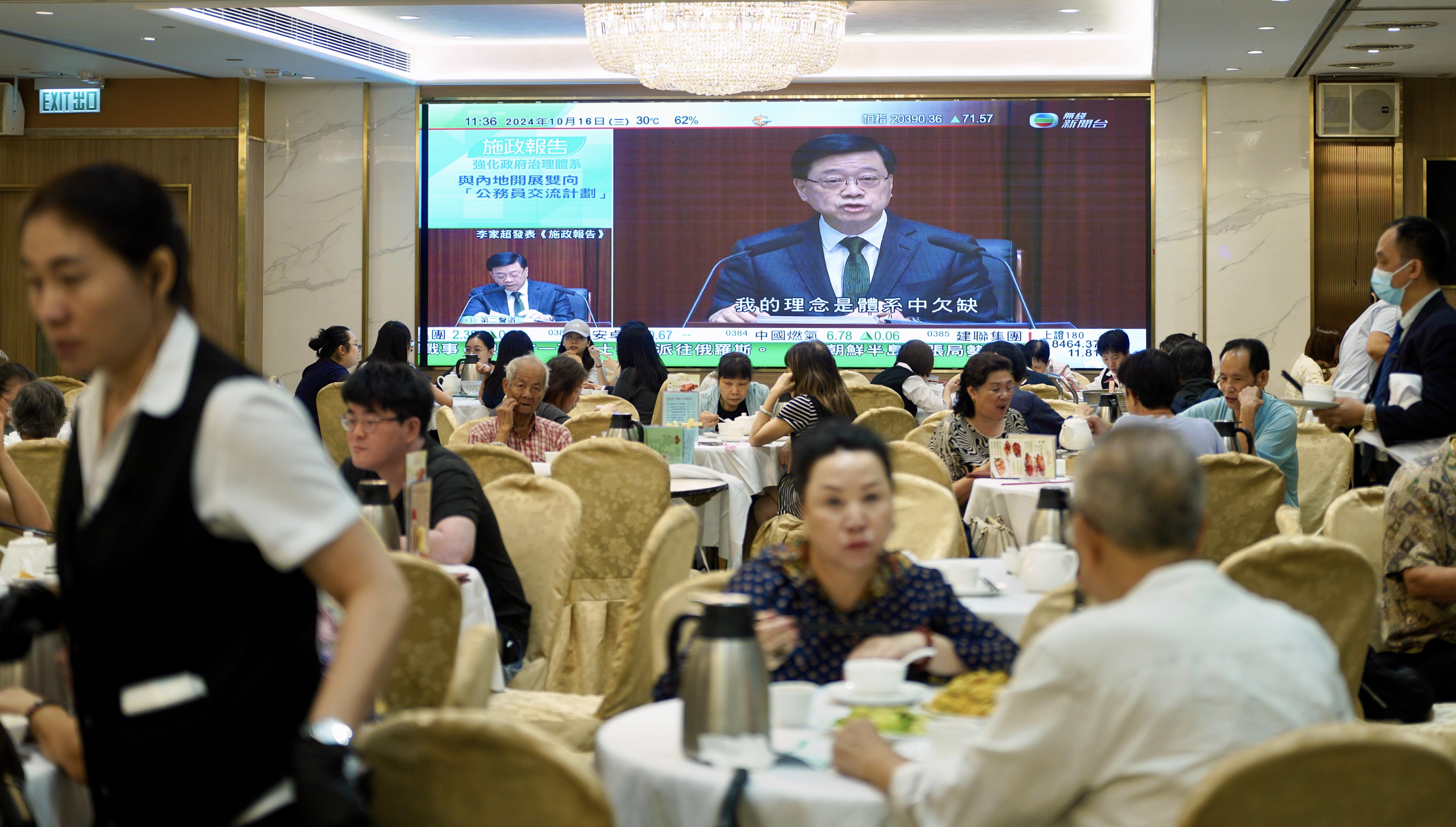
Chief Executive John Lee Ka-chiu proposed a “Study in Hong Kong” brand on Wednesday, improving the city’s existing talent admission programs and setting up a fund for local students to further their studies with the aim of turning the special administrative region into a hub for high-caliber talent.
In his third policy address, Lee introduced a raft of scholarships and incentives to nurture local talent and attract potential talent from beyond the city.
The SAR government will offer scholarships and incentives under the “Study in Hong Kong” brand to attract talent from beyond the city, especially students from the Association of Southeast Asian Nations, and other countries and regions participating in the Belt and Road Initiative. It will also encourage local tertiary educational institutions to promote the brand globally.
READ MORE: Hong Kong boosts Belt and Road scholarship program
International education conferences and exhibitions will be held in the city under the brand, with preparation already underway for an exhibition that is slated to take place in 2026.
At present, 150 places for Belt and Road scholarships are offered under the HKSAR Government Scholarship Fund, which received an injection of HK$1 billion ($128.7 million) in last year’s policy address.
Hong Kong will strive to improve its existing talent programs, such as updating the talent list and expanding the number of eligible universities under the Top Talent Pass Scheme to 198.
Among the 13 newly added institutions, nine are from Chinese mainland, including Sichuan University, Beihang University, Southeast University, Beijing Institute of Technology, Tongji University, Renmin University of China, Beijing Normal University, Nankai University and Tianjin University. The other four are overseas art and design colleges.
The validity of the first entry visas granted under the TTPS to professionals whose annual income exceeds HK$2.5 million will be extended from two years to three years.
Moreover, the government will extend an olive branch to industry leaders and celebrities, to settle in the city through a new mechanism under the Quality Migrant Admission Scheme.
Locally, Lee has proposed launching a Hong Kong Future Talents Scholarship Scheme for Advanced Studies from the 2025-26 academic year. This will help 1,200 students to pursue postgraduate studies as part of the SAR’s “eight centers” envisaged under the nation’s 14th Five-Year Plan (2021-25). Each eligible student will receive a HK$100,000 scholarship under the proposal.
Eligible programs provided by local universities will be announced in May next year.
To meet the needs of a potential surge in the number of local students, Lee suggested that the number of student hostels be increased by introducing a pilot program in the first half of 2025. The government will support developers in converting hotels and commercial buildings into self-financed hostels. According to a government source the costs, to be determined by developers, would be reasonably priced for students to rent.
Meanwhile, at least 80 hectares of land in the future Northern Metropolis in the New Territories will be reserved to develop the Northern Metropolis University Town. The original proposal was for 60 hectares. The source said part of the extra land will be reserved for Hong Kong’s third medical school, details of which will be announced in the first half of 2026.
Besides supporting higher education, Lee’s third policy address recommended that steps be taken to support the all-round development of primary and secondary school students. From the 2024/25 academic year, a pilot program will be initiated to encourage junior secondary students to learn “other languages”.
To improve the quality of education, the policy address emphasized the importance of applying artificial intelligence (AI) in teaching. The government will collaborate with Hong Kong Education City – a company that is fully owned by the government – in promoting the use of electronic tools in schools, such as online platforms and materials.
READ MORE: Hong Kong, Macao poised to be global beacons for elites
Lingnan University President Joe Qin Sizhao supported the proposals on building a “Study in Hong Kong” brand, improving hostel facilities, and setting up the Committee on Education, Technology and Talents. He said he believes these measures will enable the SAR to attract more top talent and strengthen the city’s influence on international higher education and innovation and technology research.
Supporting the initiatives to woo high-caliber talent, City University of Hong Kong said it will gradually begin to recruit more nonlocal students, in tandem with supporting facilities to cater for the expected growth of students.
Lawmaker Chow Man-kong suggested the authority set up a dedicated team to promote the “Study in Hong Kong” brand campaign.
Contact the writer at atlasshao@chinadailyhk.com


